The Junk Food Debate
The bill forcing food stamp recipients to buy healthy food doesn’t address that it’s often unavailable in inner city neighborhoods.
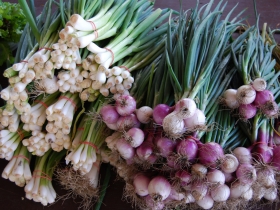
Fresh Food
Assembly Bill 110 is wending through the Wisconsin State Legislature and, given the political realities in our state, it will probably pass. The bill will require food stamp recipients to spend at least two-thirds of their benefits on “healthy” foods such as bread, milk, and vegetables.
I think this bill is backed by good intentions. Potato chips, sodas, and other nutritionally empty convenience foods are everywhere these days, and the last people who should be eating them are the poor people of Wisconsin who don’t have health insurance or regular medical checkups.
But my ten years of trying to get more healthy foods into Milwaukee stomachs tells me that this bill overlooks a major issue. The food retail system in our inner city isn’t set up to deliver the goods. AB 110 is the equivalent of slapping a band-aid on skin cancer.
Corner convenience stores are the main food source for Milwaukee’s poor. Some stores do have fruits and vegetables, but are likely to be more expensive and of poorer quality, mainly because our nation’s produce distribution system is not geared to service the small mom-and-pop corner stores. Being poor means going without time saving conveniences that many of us take for granted. Not having a washing machine and dryer, for example, means wasting a good chunk of your Saturday at the coin operated Laundromat. Not having a car puts the better stocked and more affordable suburban grocers out of reach. Go into any Milwaukee convenience store and try to make a salad out of what you find there. You can’t.
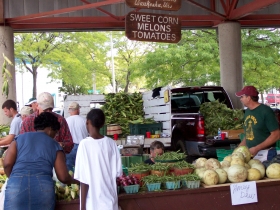
Fondy Food Center
Leveling the food field is an enormous puzzle. But Milwaukee already has many of the pieces. Dozens of agencies like the Fondy Food Center are going at it from an array of angles, like urban gardens and peri-urban farms designed to supply the city with affordable produce, or linking urban vegetable production with corner stores. Just last year the City of Milwaukee’s Office of Environmental Sustainability created the HOME GR/OWN concept. The idea was pitched to the Bloomberg Philanthropies’ Mayors’ Challenge. While it didn’t win (Milwaukee came in sixth out of over 300 entries), the idea of “urban homesteading” to transform foreclosed properties into food production lots and aggregating veggies with a “food hub” to take advantage of the economies of scale holds so much promise that the city is trying to find funds from other sources to make it a reality. And the $200,000 price tag needed to launch HOMEGR/OWN is just a fraction of what it will cost Wisconsin grocers to overhaul their infrastructures to comply with this new food stamp bill.
But the most troubling aspect of AB 110 is the introduction of a coercive element to just one part of our population. As I learned the hard way when my spirited daughter turned two, resorting to coercion around something as basic as food is not a strategy for long term success. I’d like to live in a Milwaukee where people take responsibility for their health, where they eat vegetables not because they’ve been forced to, but because they want to. That’s what real change looks like. And everywhere I look on Milwaukee’s North Side, people are changing their diets. Two years ago the Fondy Farmers Market had to add a “Nontraditional” category to its annual Collard Greens Throwdown cooking contest to accommodate all of the entries that were vegetarian and salt free.
I understand that people want their tax dollars used wisely. Wisconsinites value frugality and stories of food stamps being spent frivolously on sodas fly in the face of these values. But even AB 110 supporters admit that they don’t have any data that shows what percentage of food stamps are being used for unhealthy purchases. The evidence behind this food stamp bill is purely anecdotal. But we do know that our federal government spends 20 billion dollars each year to prop up the price of commodity crops like corn, wheat, and soybeans. These tax-funded pricing supports hide the true cost of food and make it possible to sell a 390-calorie double cheeseburger for one dollar and still make a profit. That is what the people of Wisconsin should be upset about.
If the bill passes, Wisconsin will apply to the US Department of Agriculture for a waiver to enact these changes to the federal food stamp program. History says this waiver won’t be approved. Minnesota tried in 2004 and New York City in 2010. Both times the requests were denied because “healthy food” is impossible to define.
And so we will be back to where we started, only worse. Assembly Bill 110 is a wedge that will only widen Wisconsin’s Gulf of Misunderstanding between the haves and have-nots. It’s a bill that is well intentioned but based on myths. It’s help that does not help, and anyone that’s tried to feed a family off of food stamps will see that in an instant.
What saddens me the most is how much the people on each side of this gulf don’t know each other. It’s time to start a new conversation.
Recent Urban Foodie Articles
Urban Foodie
-
Tips for Twenty-Somethings
 Mar 15th, 2013 by Young Kim
Mar 15th, 2013 by Young Kim
-
Why Hmong-Grown Produce is Different?
 Dec 5th, 2012 by Young Kim
Dec 5th, 2012 by Young Kim
-
Eating With The Season
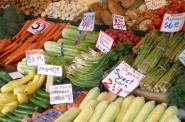 Oct 21st, 2012 by Young Kim
Oct 21st, 2012 by Young Kim







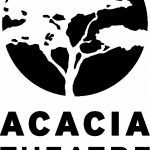










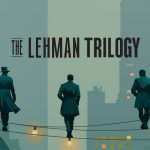

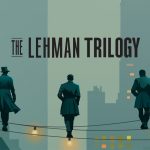

If I can play devil’s advocate for a moment, wouldn’t forcing people into the ‘healthy foods’ market create more incentive to provide these foods in areas that don’t have access to them, but would demand them because of this change?
Retailers on the North Side could potentially be more willing to provide fresh fruits and vegetables if they know their food stamp using customers will be looking for them.
As you said, still a bad bill for other reasons, but I could see still see it potentially having positive effects.
The bill also makes frozen dinners, canned soup, and other convenience items “junk food.” Yes, it is generally more economical to roast a chicken with vegetables than it is to buy the same amount of chicken and vegetables in frozen dinner form (though the bill also classifies salt, pepper, oils, and herbs/spices as “junk” too), but if you don’t have a working oven or the physical ability to lift a chicken, cut vegetables, or stand over a stove, then microwaveable frozen and canned foods might be your best hope for something reasonably balanced, even though it’s not ideal.
These retailers are stocking their shelves with the products their customers are buying. If they can’t buy the junk food the retailer will replace those items with products they can buy under the program.
I understand that liberals don’t understand marketplace economics but give me a break here!
MilwDave – Inner city retailers don’t stock vegetables because the wholesalers in town can’t sell to them. Wholesale operations are geared to big box retail, where bananas and broccoli are delivered by the truckload. Wholesalers can’t supply a mom-and-pop corner stores because these stores are small potatoes.
Marketplace economics doesn’t work if no one will sell to you.
– Young
Garrick – Who is going to supply corner stores with produce? I know a couple of operators who try to do the right thing and drive to Pick n Save or Sam’s Club, pay full retail for apples and bananas and bring them back to their store. And of course they have to mark them up. But this isn’t really sustainable from a business perspective. – Young
Young,
That’s kind of my point. If there’s all of the sudden a larger, government-mandated demand for produce, it could become profitable for somebody to engage in distribution to these smaller stores. This could either be through existing wholesalers modifying their business model or through new distributors altogether.
http://www.foodsovereigntytours.org/international-tours/cuba/co-sponsored-tours/
We could teach/learn how to make healthy food happen on every corner!
Buying produce at full retail from one of the big groceries doesn’t make any sense, but there are other ways to get fresh produce. Sam’s Club or Costco would get you better small volume prices with a consistent supply. Or if you have some flexibility, there are distributors that sell produce to the public, like at 300 Van Buren in the afternoons.
This is an interesting bill. I was actually surprised to learn that junk food was okay to buy with food stamps. Very surprised.
I don’t usually agree with the Republicans, but assuming – that is a big “assuming” – that something can be done to improve accessibility to fresh quality produce, then I really don’t have a problem at all with this bill. Heck – just subsidize the darn veggies. The fact is we currently massively subsidize corn which is the main source of sugar in junk food. Why in the name of god do we do that? Subsidize the damn kale for god’s sake.